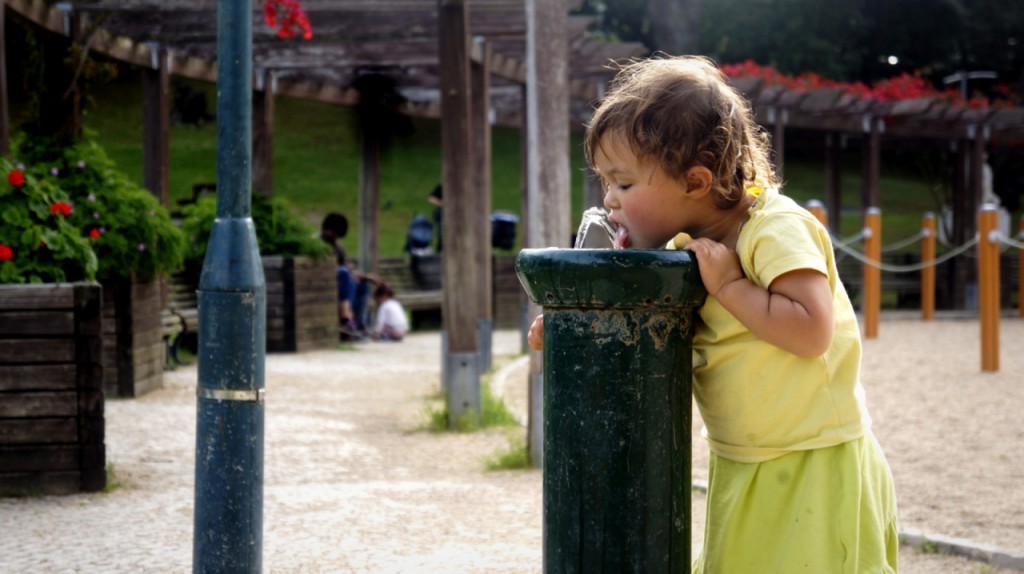It is getting sweeter. Unbearably sweet. I go to the park with Miru to let her play on the swing and drink water from the fountain while I lie in the grass with an electronic book. There are always many children there to play with her.
There is no lack here. This should be anyone’s idea of heaven. I lie down on the coarse warm sand (or fine gravel, in heaven we can have an infinite debate about that) that perfectly accommodates the shape of my body and gives a pleasant rubbing sensation on my calves. The book is about a large writer born in the same country as myself, and his experiences in the city of Genua. I can relate to the story and laugh at some pages. When a subtle breeze prompts me I look up and see Miru sitting on her swing, or running to the see-saw with both her arms swinging wildly to give her balance. I see the moving shadows of the roses on the trellis and the trees overhead. A stone’s throw away is the café terrace where we sometimes enjoy an espresso as we listen in to the stories of visitors. In the background there are Chet Baker’s jazz ballads that sound like a reverberating mantra. Miru is licking on a piece of red candy. I ask her if she’d share it with me and she nods. Then she takes off an imaginary piece with her thumb and index finger, and brings it to my lips. Then she runs to the fountain that she can operate by herself and starts drinking water. I smile and return to my book.
Lying in the sun watching your child play. Some might object that this is immoral – because shouldn’t we all work in the sweat of our brow – longing to lie in the sun and watch our child play? Isn’t it perverse to boldly act as if we live in heaven on earth, even if (or precisely if) we know that our action is the only way to bring about heaven on earth? To put it another way, by lying in the sun, or by lying under a banana tree, you could deflate the balloon of guilt that has too many people floating safely above the abyss of meaninglessness. This seems to me the real argument, that is often dressed up in the clothes of the protestant work ethos “we should all labor to be deserving”, that in turn disguises itself as a pragmatist point, that we “must make the world go round”. I urge you not to fall for this. The point is not that automation has made nearly all labor ultimately futile, although that’s also true. At the root of such moral argument is a fear that we would indeed create heaven on earth, because if we do so, it would retroactively render meaningless the very idea that we will one day “go to heaven”. It is that idea that is the prime motivator for the working class, and the idea seems to function even better in its hollowed out, atheist version of “borrowing to pay for education to get a job to pay back the loan”. It’s not hard to see that we can offend this fragile skeleton of meaning very easily. I do it by lying in the sun and making the provocative statement that we are in heaven.
But are we? That’s the second point. Is our heaven that place that is totally devoid of longing, or would our minds be so bored they’ll start devouring themselves? Imagine: It would be a chillingly boring horror movie that features such autophagous minds. Perhaps our idea of heaven necessarily features a subtle reminder of desire, thus of lack, that appears in the gentle rhythm of the shadows cast by the leaves and rose buds dangling from the trellis. We look up and see the trace of a desire, perhaps the cleavage of a phenomenally beautiful young mother, in the split second before we realize how happy it makes us to solemnly declare, together with our partner, that such desires are fake (an open source definition of marriage!). There is just enough to prevent the complete absence of desire, but never so much that it would disturb us. It’s an engineered heaven, with a small solar-powered dialectics fan blowing gently the boredom out of our faces.
I go home and finish this writing at 3am. Ora et labora.

Mooi!